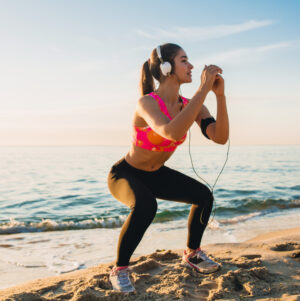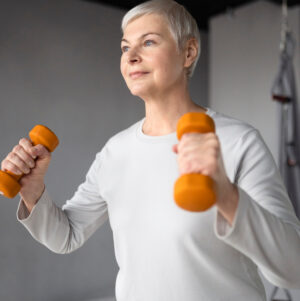When I was in college, almost all of my friends went to the gym. But not me – why bother? After all, they mostly wanted to lose weight, and I always had an excellent figure – everyone envied me. So, I never had a love for sports; I sincerely believed that sports were a “punishment” for those with weight issues.
However, I eventually got into sports. And not because I gained weight! About a year ago, I began to notice that I was constantly in a bad mood. Anxiety, poor sleep, and a loss of appetite – it was all there. Whether it was stress or depression, I didn’t know. I went to the doctor, and unexpectedly for me, he said that I needed to move more. I didn’t understand the connection. But he explained everything to me in detail.
Emotions "live" in the body
How to convey what I feel? Usually, people say: “My soul is light, wings grow from happiness,” “My soul is heavy, sorrow bends me to the ground,” “I’m bursting with rage,” “butterflies in my stomach”… All of this – through the body! So, if the task is to organize your emotional state, you need to approach it from this side. And the body and sports are directly connected.
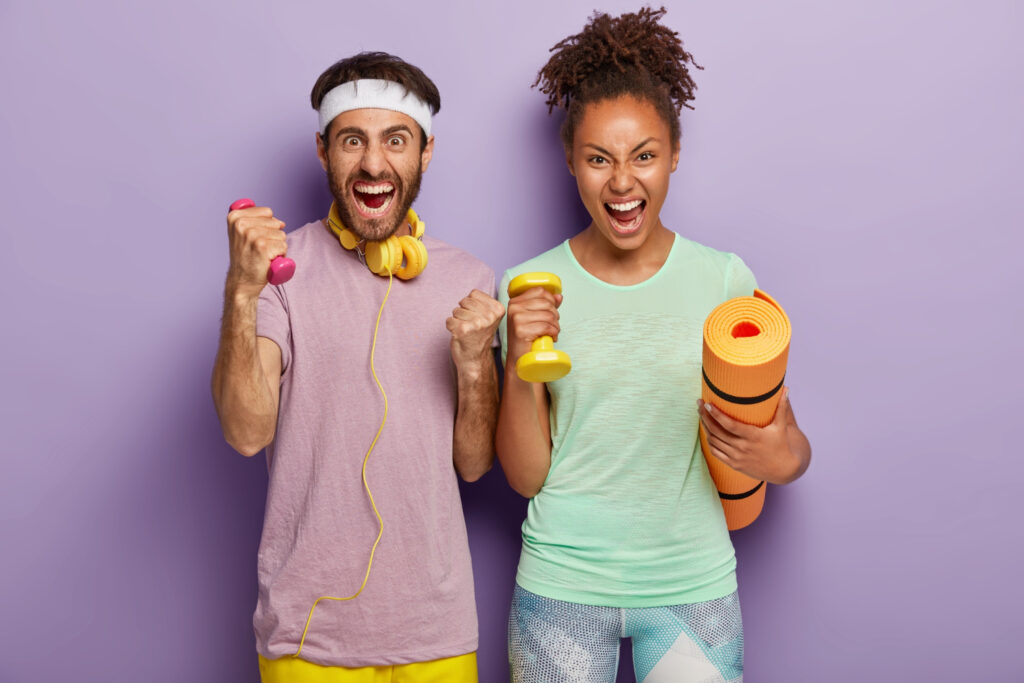
Why are emotions important?
By the way, we often do not pay attention to emotions, do not give them enough weight. “What do I care about what I feel there.” But emotions are not just some “wind in the head.” They were given to us by nature back at the beginning of evolution because emotions often help make decisions. We think we rely on logic, but often, it’s just an illusion.
- We find ourselves in a certain situation.
- The “emotional brain” looks in memory for a similar situation in the past.
- It lets us experience the same emotion we felt then.
- And precisely this emotion “hints” at the necessary response, for example: to leave, to cry, to shout.
We don’t even always manage to send a “request to logic.” And even if logic says something different, dealing with the emotion is not always successful.
In addition, emotions also have their “logic,” and what logic! “Last time you tried – in the end, it was painful and bad for you. Now you want to try again? It’s better to run away from here.” This is how the emotion of fear works.
Hormones also “live in the body”
Another ancient mechanism through which nature “manages” us is hormones. For example:
- Cortisol – the stress hormone, destroys the sense of security. “The world around is very dangerous, and everyone wishes me harm.”
- Adrenaline and noradrenaline – hormones of fear and aggression.
- Dopamine – “praise” from nature for achieving an important goal, for example: finding food or a safe place.
- Oxytocin – hormone of security and trust.
- Serotonin – happiness hormone.
- Endorphin – “pain reliever” hormone, relieves stress, helps overcome difficulties.
Now let's see how it's connected to the body.
It’s proven that when a person leads a sedentary lifestyle, their cortisol levels rise. Hence, the anxiety. “Defeating” this hormone is impossible: no matter how much you convince yourself that everything is fine, until its level in the blood decreases, anxiety will remain.
Adrenaline and noradrenaline are released into the blood when something threatening happens. They instantly prepare the body to run or fight: blood pressure rises, reaction speed increases, pupils dilate… However, today, almost all our conflicts happen “over the phone” or “over the Internet.” To lower the levels of adrenaline and noradrenaline, movement is absolutely necessary. But we sit on the couch and argue on the phone… Therefore, inside, “everything boils,” irritation accumulates, and we are ready to explode in anger over any minor reason.
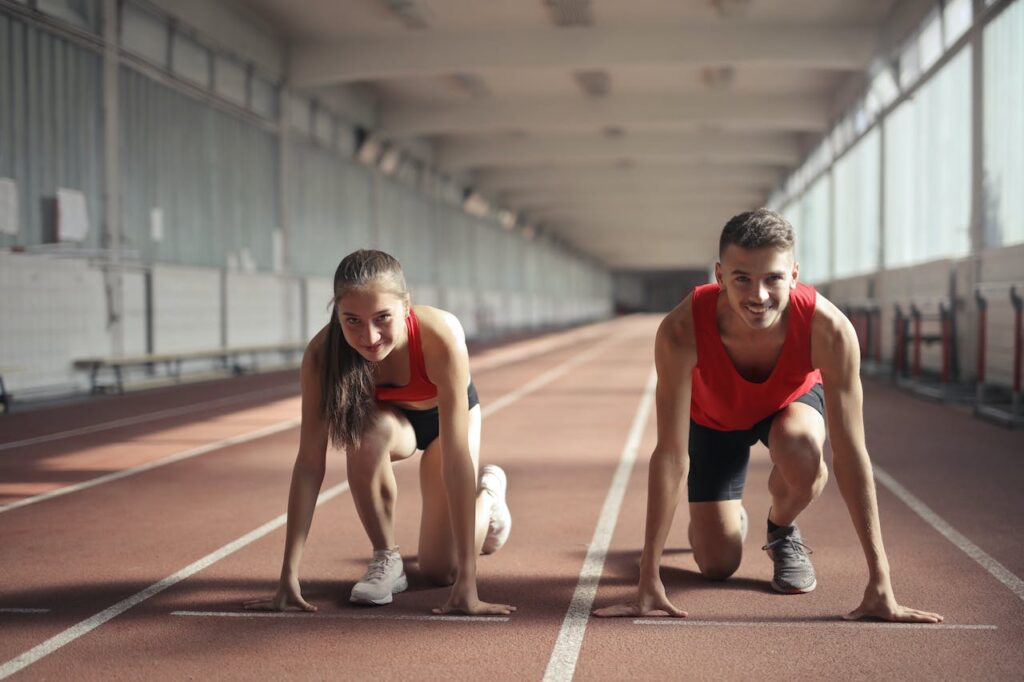
How sports help solve the problem?
Experts believe that the connection here is direct and very strong. For instance, psychologist Ilios Kotsu explains that sports help reduce cortisol levels in the blood while promoting the production of endorphins, known as “happiness hormones.” The predominance of “positive hormones” over “negative” ones alone can significantly improve psychological well-being. Moreover, a short run can effectively “release” adrenaline and noradrenaline from the body, helping to alleviate irritability and fear.
Additionally, sports aid in restoring proper breathing, which is also linked to emotions. For instance, during intense shock, breathing becomes constricted, and anger accelerates it. Therefore, since emotions influence breathing, the reverse is also true: breathing impacts emotions. This principle underlies numerous breathing exercises and yoga practices. Even regular cardio, any form of sports lasting more than 30 minutes without strength training, such as running, swimming, or tennis, can help. When, for example, you run, you control your breathing, making it rhythmic and calm. Thanks to this, emotions living in the body transform from anxious to serene and from unpleasant to pleasant.
In this way, we can fairly easily change our psycho-emotional state, without resorting to pills or other extreme measures. Even the strongest pills, I must note, cannot completely overcome hormones!
What should sports be like “for a good mood”?
Depending on the goals and principles we adhere to in our sports activities, they will vary. If we are “hunting for a good mood,” they won’t be the same as those for future Olympic champions
- In the process, “listen to your body.” Pay attention to how you feel before, during, and after the workout. Notice the calmness of your breathing, pulse rate, and so on. By “listening” to your body, you will better understand your own emotions, express them more accurately, and make decisions based on their “recommendations.”
- Avoid excessive workouts. If you’re tired, you can end the workout right away. It should be enjoyable! Also, if you don’t have much experience in sports or none at all, like me, gradually increase the load. In the first week, running for just half an hour is enough.
- Cortisol, the same one that accumulates regularly in our body. Obviously, if you engage in sports once a month, it won’t solve the problem. Much better to do a little, but every 1-2 days.
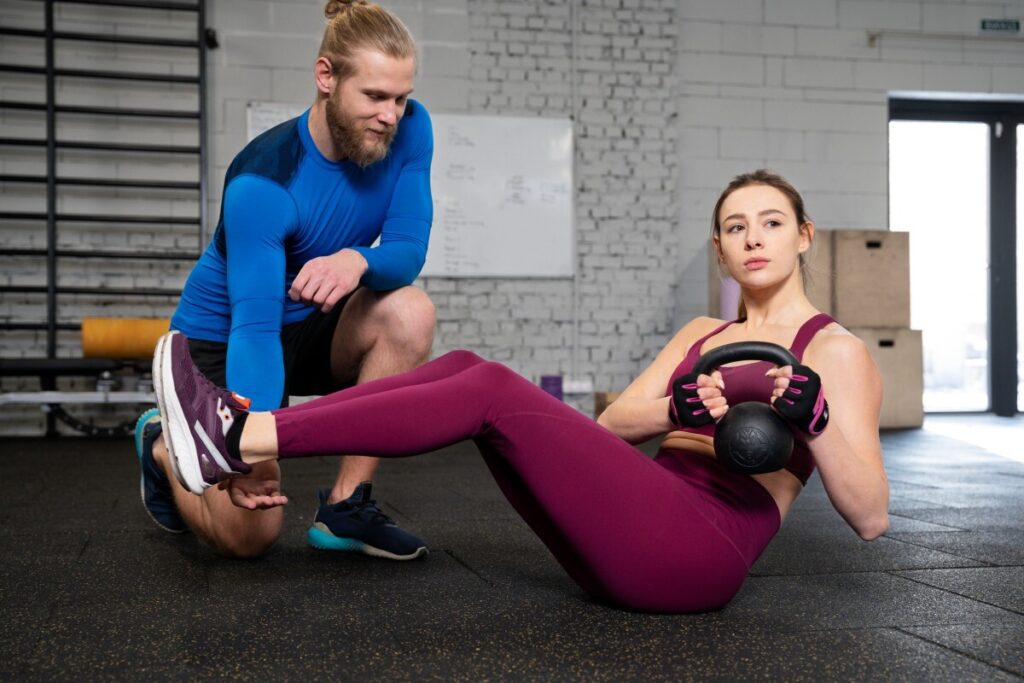
What type of sports to choose?
I pondered this for a long time but ultimately decided that running suits me best. After all, it is the most “accessible.” For example, swimming requires a pool, which is not always at hand. Tennis is a group sport, which means adjusting to a specific time and depending on other people. But you can run anytime, anywhere. Therefore, for someone who values regularity, it is indeed the best solution.
